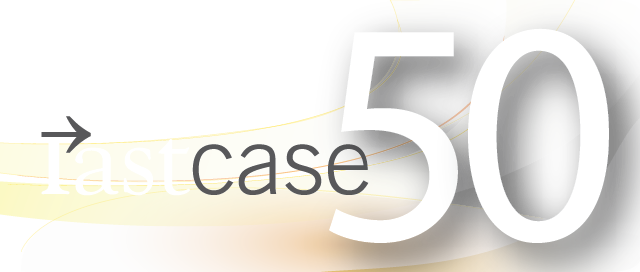
Click here to see the Fastcase 50 Class of 2023!
Honoring the law’s smartest, most courageous innovators, techies, visionaries, & leaders. Lawyer or nonlawyer, techie or nontechie, anyone is eligible.
Created in 2011, each year the Fastcase 50 award honors a diverse group of lawyers, legal technologists, policymakers, judges, law librarians, bar association executives, and people from all walks of life. In many cases, honorees are well known, but in many others, the award recognizes people who have made important, but unheralded contributions.
“When we look back at the pandemic era, we will see it as a great reset in our attitudes and assumptions about legal services,” said Fastcase CEO Ed Walters. “Even if they have had to spend more time on Zoom this year than they had planned, the 2022 class of honorees is making profound changes for the next generation of law. We celebrate these impactful advocates and inspiring innovators who are shaping the future under incredibly challenging circumstances.”
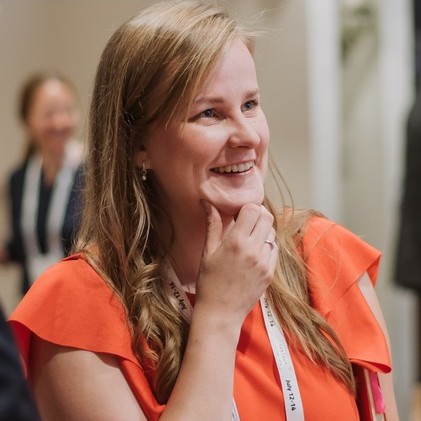 Anette Aav
Director, IT Law Programme, University of Tartu
Anette Aav
Director, IT Law Programme, University of TartuEstonia has long been known for its oversized contribution to global technology, and the work Anette Aav is doing certainly contributes to that reputation. As Director of the University of Tartu’s IT Law Programme, Anette is writing the book on bringing a technology focus to law schools. It’s a necessity in a country that is innovating so quickly that regulations and policy are similarly evolving at breakneck speed. Anette also organized the SubTech 2018 conference in Tallinn, Estonia, a longstanding summit for scholars and practitioners to collaborate and discuss how technology impacts law and education.
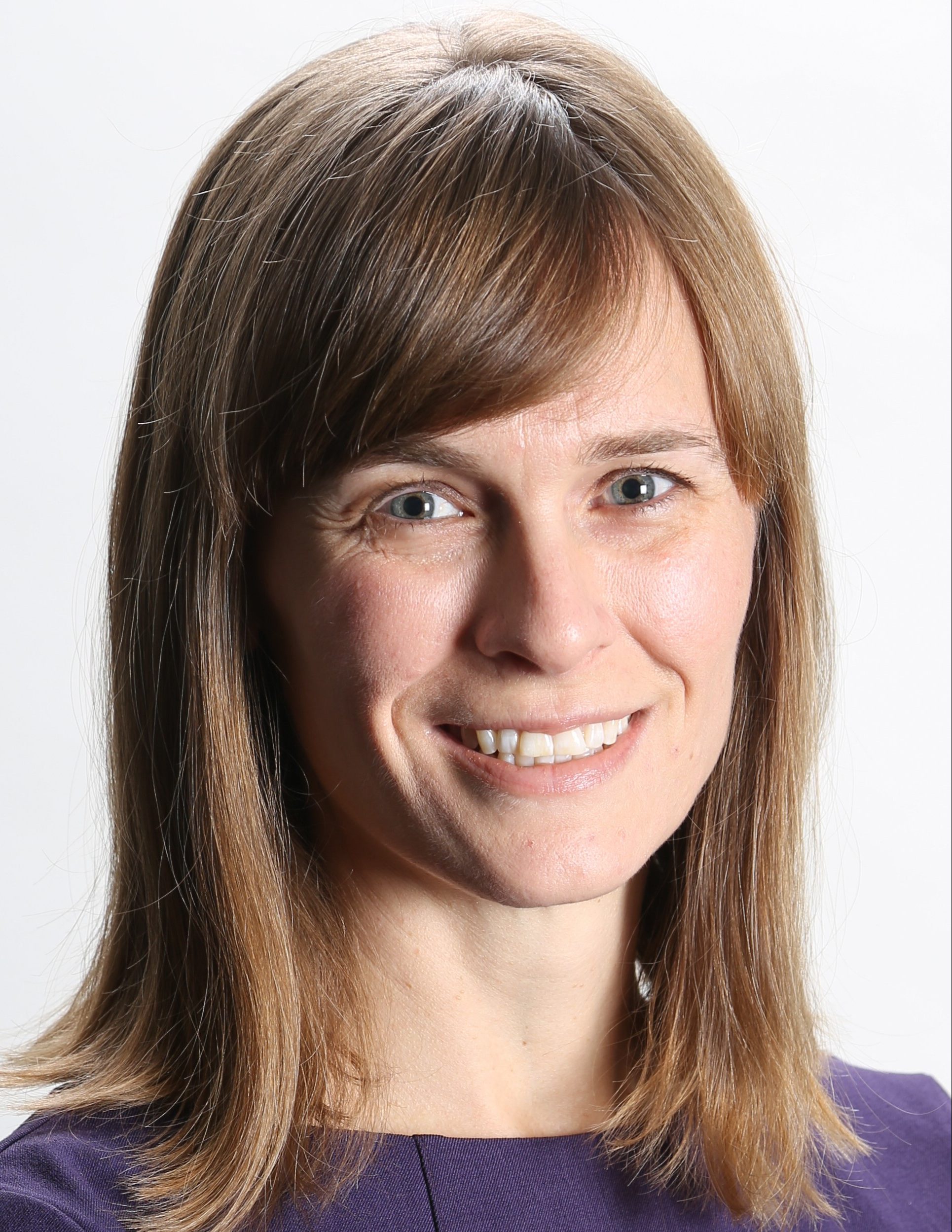 Charlotte Alexander
Director, Legal Analytics Lab; Associate Professor, Georgia State University
Charlotte Alexander
Director, Legal Analytics Lab; Associate Professor, Georgia State UniversityCharlotte Alexander is a professor at Georgia State University’s Robinson College of Business as well as the College of Law, where she heads the Legal Analytics Lab, an interdisciplinary program that brings legal and business scholars together for large-scale data science projects. Current work for corporate and government partners includes data analysis and the use of machine learning for the prediction of litigation trends and outcomes. Legal analytics are one of the most important emergent technologies in the practice of law. Lawyers and law firms have a lot to learn from the well-honed science of business analytics, and the Legal Analytics Lab’s cross-disciplinary approach brings the necessary expertise to help the legal community acclimate to a world of analytics.
 Jason Barnwell
Assistant General Counsel, Microsoft
Jason Barnwell
Assistant General Counsel, MicrosoftJason Barnwell has been a nationwide leader in promoting better process and measuring the quality of legal services, both inside his corporate legal department and with outside counsel. As the leader of Microsoft’s Legal, Business, Operations and Strategy team, Jason has leveraged his background in software development (he has a degree in Science and Engineering from MIT, as well as a law degree), but he does not believe that software can solve every problem. “It’s not necessarily going to require a bunch of big shiny AI robots,” he has said. “It always starts with the human side — machines don’t understand what we’re really trying to get done here. But then when you want to deliver excellent value at scale, tools tend to help. Firms that marry the two things together will be great. We want great legal professionals partnering with very skilled technologists to bring us the best of both worlds.” From his position as a new board member of the Corporate Legal Operations Consortium (CLOC), Jason will be in a position to drive measurably better processes in legal departments around the world.
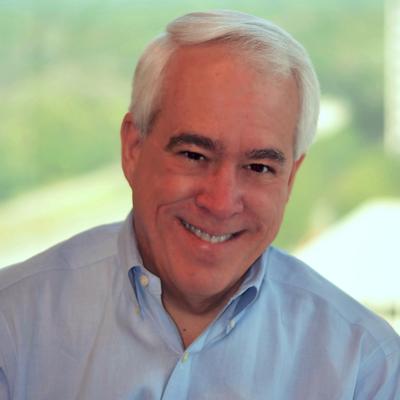 Raymond Bayley
CEO and Co-Founder, Novus Law LLC
Raymond Bayley
CEO and Co-Founder, Novus Law LLCRaymond Bayley, Novus Law CEO and Co-Founder, is a champion of innovation, process improvement, and quantifying legal services that many had believed unmeasurable. Novus Law's corporate clients told Raymond that, with better, faster, earlier information, they could resolve more matters sooner, and significantly reduce their legal operating and indemnity costs. Together with Co-Founder Lois Haubold, Raymond created a new case assessment tool called Novus Accelerate, which combines process management, machine learning, statistics, and decision analytics. Raymond and Novus Law are working to transform electronically stored information into work product that corporate counsel and their law firms can use to pursue their legal strategy.
 Kim Bennett
Founder, K Bennett Law
Kim Bennett
Founder, K Bennett LawKim Bennett brought a wealth of different life experiences to the table when she started her law firm. She formerly studied medicine, researched psychology, and worked in Google’s legal department. It’s no surprise these diverse experiences give her a different perspective on the practice of law. Today, Kim is helping create a new model for virtual law firm practice. Kim is a proponent of subscription-based law practices, especially as a valuable alternative fee structure for firms that serve small businesses. She founded K Bennett Law, a boutique virtual law practice offering subscription and on-demand legal solutions primarily for trademark and copyright law, business and commercial law, and labor and employment law. Kim also hosts a monthly Facebook Live show, The Modern Legal Collective, teaching lawyers how to add subscription services to their practice, and leading workshops and presentations on adding alternative revenue streams.
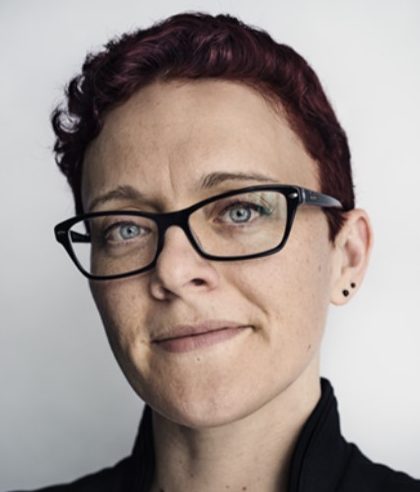 Jess Birken
Founder, Birken Law Office
Jess Birken
Founder, Birken Law OfficeJess Birken owns Birken Law Office, a solo firm for nonprofits. That’s where she offers an innovative, highly automated, subscription-based legal program for nonprofits called Mission Guardian. Jess doesn’t believe attorneys need to be tied to the way things have always been done – or even to their office. She works out of her backpack at some favorite spots including her best friend’s dining room table in Seattle, a co-working space in Minneapolis, her parents’ pool in Florida, and airports. When she’s not lawyering, Jess is helping other lawyers change their lives and their law practices through her Hack Your Practice project. The venture helps other lawyers discover ways to lifehack their law practice and crack the code on work/life integration.
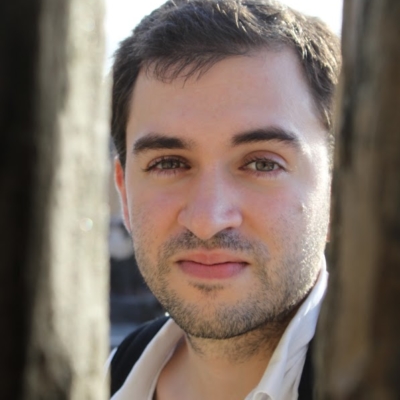 Michael Bommarito
CEO and Co-Founder, LexPredict; Adjunct Professor of Law, Michigan State University; Head of Research, ReInventLaw Laboratory
Michael Bommarito
CEO and Co-Founder, LexPredict; Adjunct Professor of Law, Michigan State University; Head of Research, ReInventLaw LaboratoryMichael Bommarito is the CEO and Co-Founder of LexPredict, which since 2013 has been one of the most interesting and fun combinations of legal analytics, data science, and strategy in the game. Alongside former Fastcase 50 honoree Dan Katz, Michael has worked with the LexPredict team to create a host of amazing products, such as the open source AI tool ContraXSuite, a leading smart contracts tool. Michael and his team also pioneered Fantasy SCOTUS, which is exactly what it sounds like: people predict the outcomes and votes of Supreme Court cases, and in recent years, compete against the company’s prediction tool MarshallPlus. As a law professor, Michael is helping to update the law school curriculum, teaching a course on Legal Analytics at Michigan State University, a first-of-its-kind program exploring machine learning and other advanced topics.
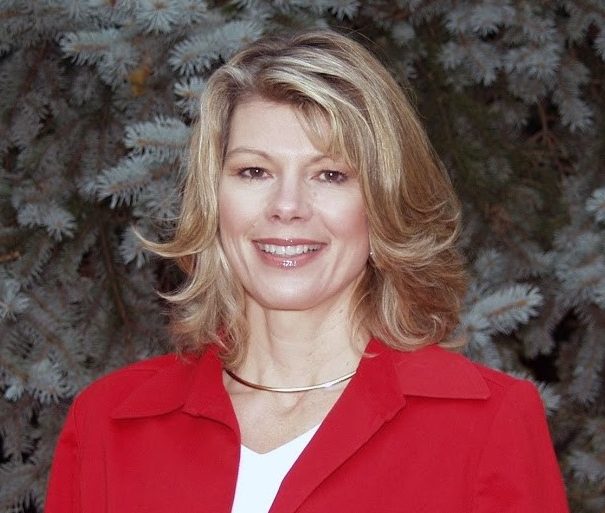 Brenda Castello
Executive Director and CFO, New Mexico Compilation Commission
Brenda Castello
Executive Director and CFO, New Mexico Compilation CommissionBrenda Castello leads the New Mexico Compilation Commission (NMCC), a relatively unique agency that serves as the official publishing hub for the state’s legislation and caselaw. Although the agency was created in 1941, just this past spring the NMCC pushed out a major service to benefit the public – open, official, annotated statutes, appellate court decisions, court rules and forms, session laws, and Attorney General opinions, all available in a high-quality, easily accessible database, and not affiliated with a commercial publisher. Annotated statutes available for free, and published by a state agency, are nearly unheard of. Brenda’s approach has rapidly become the standard for how to implement free and open access to the law at all levels of government.
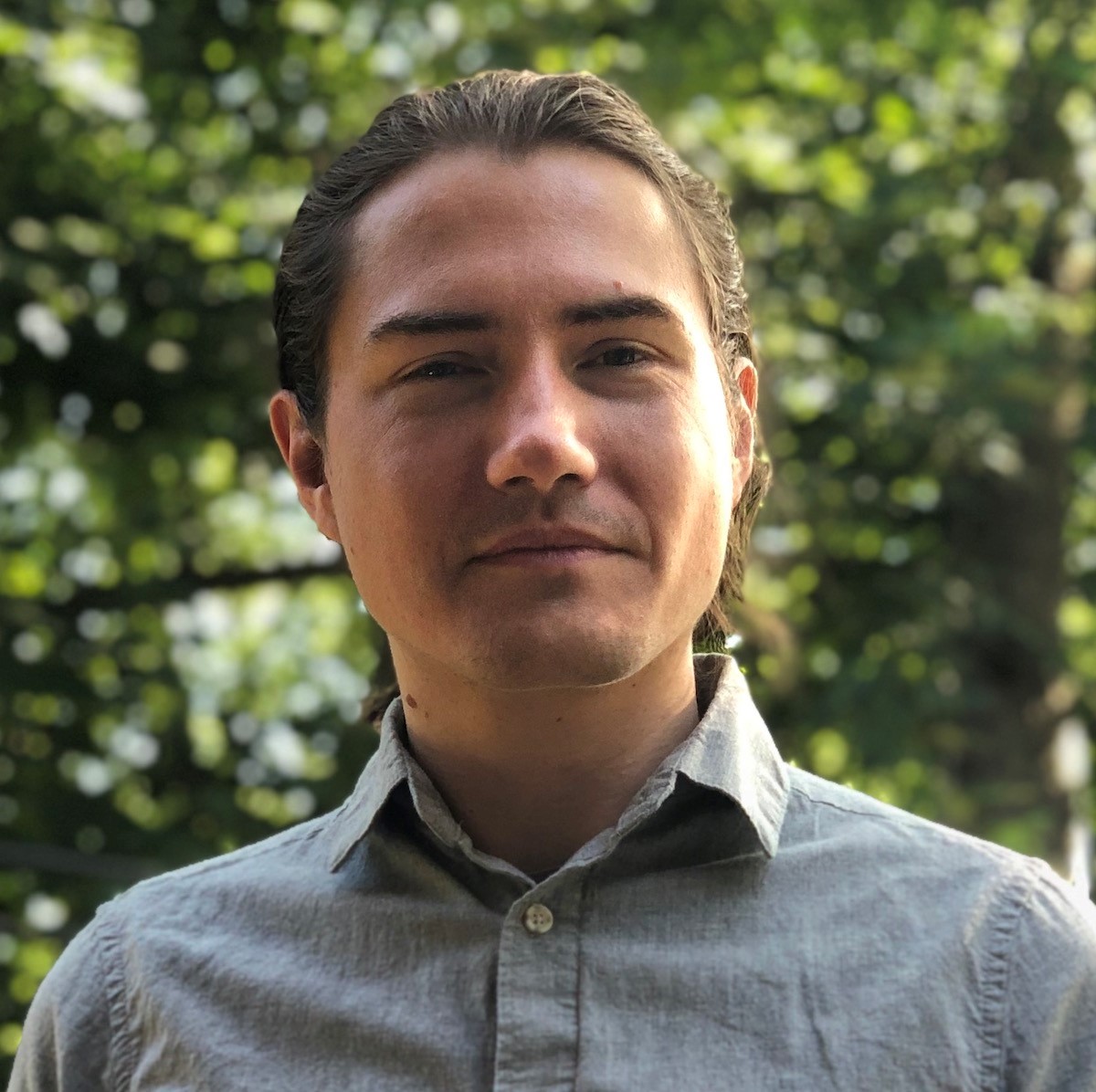 Jack Cushman
Fellow, Berkman Klein Center for Internet and Society; Lecturer on Law, Harvard Law School
Jack Cushman
Fellow, Berkman Klein Center for Internet and Society; Lecturer on Law, Harvard Law SchoolAs a member of the Harvard Library Innovation Lab, Jack Cushman brought Perma.cc to life, an amazing tool that stops legal reference link rot in its tracks. That accomplishment alone makes him a Fastcase legend, but Jack’s career has been peppered by similarly amazing accomplishments in the fight to make the law more accessible. For instance, the Lab’s Caselaw Access Project (in conjunction with Ravel Law) has amassed a digital database of every precedential decision published by a court within the United States, free for research and nonprofit uses. A true renaissance personality, Jack straddles the line between computer development and the practice of law, having worked and lectured in both fields. This spring he will teach Computer Programming for Lawyers at Harvard Law.
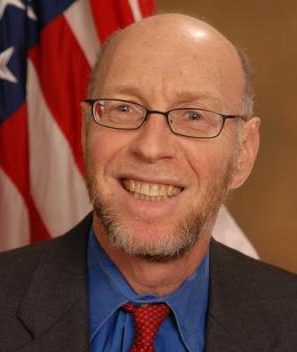 Michael Dreeben
Deputy Solicitor General, U.S. Department of Justice (retired)
Michael Dreeben
Deputy Solicitor General, U.S. Department of Justice (retired)Michael Dreeban is a 30-year veteran of the Department of Justice, long serving as the Deputy Solicitor General of the United States, focusing on criminal law cases. Michael is one of only seven people in history to try more than 100 cases before the U.S. Supreme Court. Orin Kerr has praised him as the “biggest brain in criminal law in the country,” and POLITICO said that he is “widely recognized by both Democrats and Republicans as one of the government’s elite attorneys and strategists for ferreting out illegal behavior.” He has been in appellate practice for so long that he argued his first case before the Supreme Court in 1989, United States v. Halper, against now-Chief Justice John Roberts. Michael has taught as a visiting faculty member at Duke Law and as an adjunct professor at Georgetown Law, for which he may have more time after his retirement from a long career in the Department of Justice in 2019.
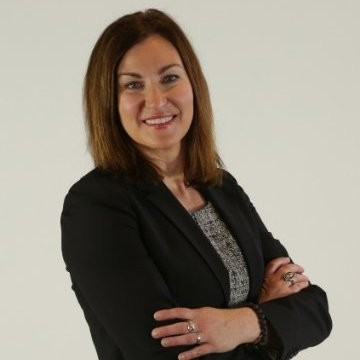 Marlene Gebauer
Global Director of Strategic Legal Insights, Greenberg Traurig LLP
Marlene Gebauer
Global Director of Strategic Legal Insights, Greenberg Traurig LLPMarlene is a visionary in the application of legal technology, and was one of the first to bring data analytics into the day-do-day functions of law firms. She applied analytics across the entire firm, not just in one practice group or the other. Through her work at Greenberg Traurig she has boldly reinvented the way her firm approaches practice by creating the firm’s Innovation Lab, which implements processes through gamification techniques. Marlene routinely shares her knowledge on the popular podcast “The Geek in Review”, which she hosts with fellow librarian and Fastcase 50 honoree Greg Lambert.
 Anusia Gillespie
U.S. Director of Innovation, Eversheds Sutherland
Anusia Gillespie
U.S. Director of Innovation, Eversheds SutherlandWhen one of England’s largest firms, Eversheds, merged with Atlanta-based powerhouse Sutherland Asbill & Brennan at the end of 2016, people knew that the combined Eversheds Sutherland would be a new kind of global firm. One of the firm’s first acts was to hire Anusia Gillespie to lead the firm’s innovation efforts in the United States. Anusia is no stranger to driving law firm culture: she literally wrote the book on research-based efficiency, as Co-Author of Smart Collaboration for Lateral Hiring: Successful Strategies to Recruit and Integrate Laterals in Law Firms. A lawyer by training, Anusia had previously specialized in Program Design and Development at Harvard Law School’s School of Executive Education. At Eversheds, Anusia is showing lawyers how to use new tools (such as Fastcase’s AI Sandbox) to mine the firm’s expertise and create legal services for more differentiated client service.
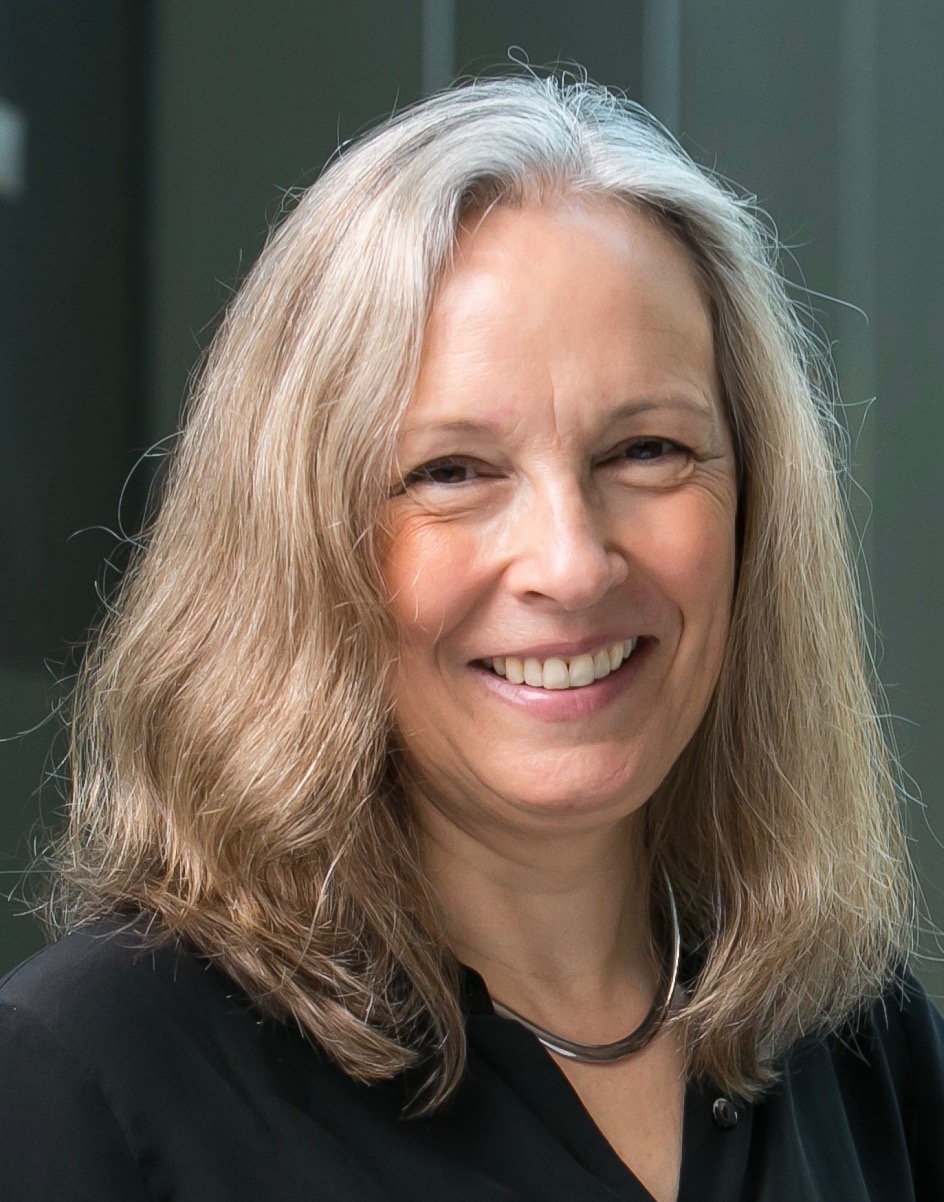 Gillian Hadfield
Professor of Law, University of Toronto Faculty of Law; Author, Rules For a Flat World
Gillian Hadfield
Professor of Law, University of Toronto Faculty of Law; Author, Rules For a Flat WorldProfessor and legal theorist Gillian Hadfield has taken on the task of exploring how our economic world has and should change as a result of technology and globalization. In the intellectual tradition of Thomas Friedman, Hadfield has written Rules for a Flat World: Why Humans Invented Law and How to Reinvent It for a Complex Global Economy. Her conclusion? The rules need to shift, and perhaps outside of traditional legal structures. In addition to writing about the intersection of the global economy and law, Gillian serves as Senior Policy Advisor for OpenAI, a San Francisco based research lab focused on ensuring that growing AI technology benefits all of humanity. She also teaches a course entitled “Responsible AI” at the University of Toronto. The class explores governing machine-assisted decisions with care and forethought.
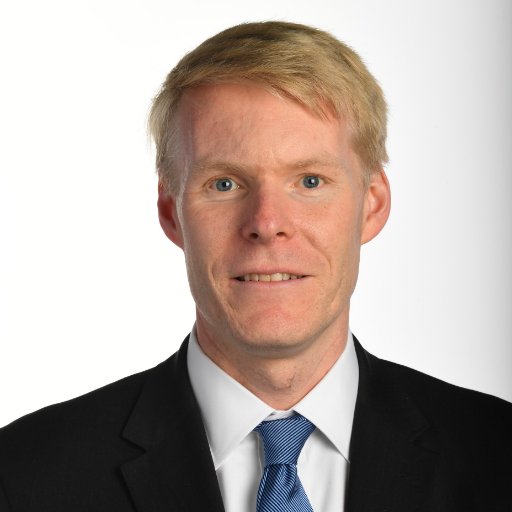 Brad Heath
D.C. Justice and Investigations Editor, USA Today
Brad Heath
D.C. Justice and Investigations Editor, USA TodayAs an investigative reporter for USA Today, Brad Heath has covered everything from crooked federal prosecutors to ATF sting operations and made a name for himself among D.C. journalists in the process. However, in the legal tech community he is perhaps best known for creating the beloved Big Cases Bot (@big_cases), which tweets out new PACER filings in key federal cases. With more than 42,900 followers, Big Cases Bot posts all manner of documents in real-time from behind the PACER paywall, including those related to prosecutions arising from the Mueller investigation and challenges to President Trump’s executive orders. In addition to Big Cases Bot, Brad has developed @OralArguments to index federal appellate courts, updated every 15 minutes.
 Seamus Hughes
Seamus Hughes Program on Extremism Deputy Director, George Washington University
Seamus Hughes
Seamus Hughes Program on Extremism Deputy Director, George Washington UniversityAs a national expert on terrorism and violent extremism, Seamus Hughes is also a major resource to the public and journalism community. Seamus roots through court filings to find useful filings and trends that professional journalists and lawyers miss. He even accidentally discovered the federal government’s confidential case against WikiLeaks Founder Julian Assange, just from public court filings. What makes Seamus’ work at GW’s Program on Extremism all the more noteworthy is that it is written specifically for public consumption, without the use of excessive legalese or academic jargon. Seamus is now sharing his tricks of the trade, leading workshops to teach journalists how to find stories in docket entries.
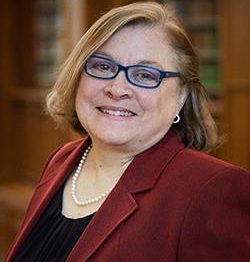 Darla Jackson
Research and Electronic Resources Librarian, The University of Oklahoma College of Law
Darla Jackson
Research and Electronic Resources Librarian, The University of Oklahoma College of LawDarla Jackson’s career has run the gamut, but there’s always been a consistent passion – helping others learn the skills necessary to practice law and research effectively through unceasing shifts in technology. From her current position as a librarian at OU Law, to her work at the Oklahoma Bar Association’s (OBA) Management Assistance Program and as a judge advocate in the U.S. Air Force, Darla has remained focused on the larger goal of delivering quality legal services to the public. To that end, she serves as vice chair of the OBA’s Access to Justice Committee and shepherded the launch of Oklahoma Free Legal Answers, which provides a platform to connect those in need of legal assistance to qualified volunteer attorneys throughout the state.
 Sukesh Kamra
National Director, Knowledge Management, Norton Rose Fulbright Canada
Sukesh Kamra
National Director, Knowledge Management, Norton Rose Fulbright CanadaNorton Rose Fulbright faced a problem: the firm had grown through acquisition, and it did not have a consolidated repository for its information. It turned to Sukesh Kamra, who created a KM business case for the management committee and led a firmwide change in its information strategy. Following Sukesh’s business case, the firm created new budget lines, hired professionals from the sales and software development disciplines, began using an agile software methodology, and started creating its own customized software solutions for clients. Norton Rose Fulbright is part of the “maker revolution” in law firms, as they move from consumers of third-party software to creators of customized solutions for clients.
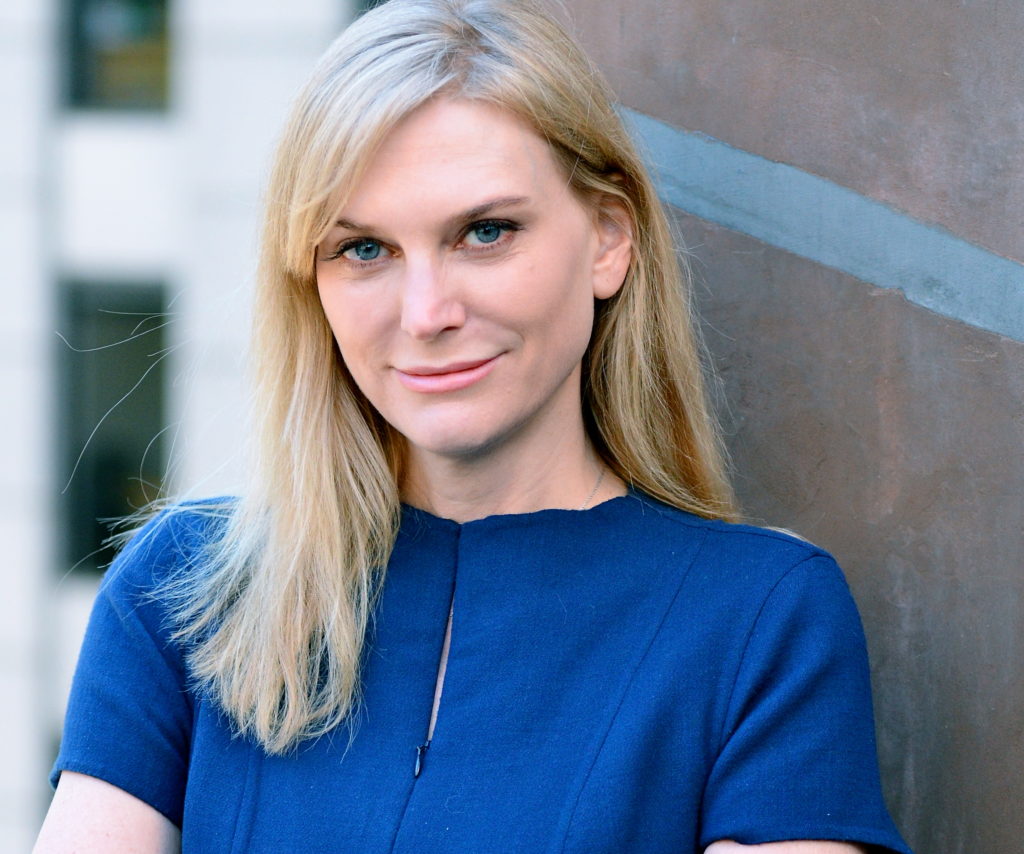 Catherine Krow
Founder and CEO, Digitory Legal
Catherine Krow
Founder and CEO, Digitory LegalSpending at large firms can often get out of hand, but after the 2009 financial crisis consumers began to expect a new kind of efficiency and accountability, with fixed budgets and predictive results. That’s why Catherine Krow created Digitory Legal. Digitory is a cloud-based legal budgeting and resource management product that helps in-house departments find counsel, stay within budget, and generally control legal spending. The software can project what various tasks should cost and why. Having worked as a partner at Orrick and as an associate at Simpson Thacher and other national law firms, Catherine has a very practical understanding of legal cost management, fee structures, and the role of AI in legal technology. At a time where corporate legal departments are trying more than ever to budget for legal matters, Digitory may be their cost-control tool of choice.
 Marie Kulbeth
COO and General Counsel, SixFifty
Marie Kulbeth
COO and General Counsel, SixFiftyThrough SixFifty, the software development subsidiary of Wilson Sonsini, Marie Kulbeth and her team of lawyers and engineers (which includes fellow Fastcase 50 honoree Kimball Dean Parker) are streamlining complex areas of the law with technology solutions. For its first public launch, SixFifty Privacy automated the main obligations under the California Consumer Privacy Act (CCPA) to help businesses comply more quickly and affordably. It’s newest pro bono tool, Hello Landlord, helps low-income tenants more effectively communicate with landlords to avoid eviction and seek redress for unsafe living conditions. We expect there is a lot more to come from Marie and SixFifty in tackling access-to-justice issues by combining legal expertise with automated technology, all under the umbrella of Wilson Sonsini, a law firm that has its share of expertise with software.
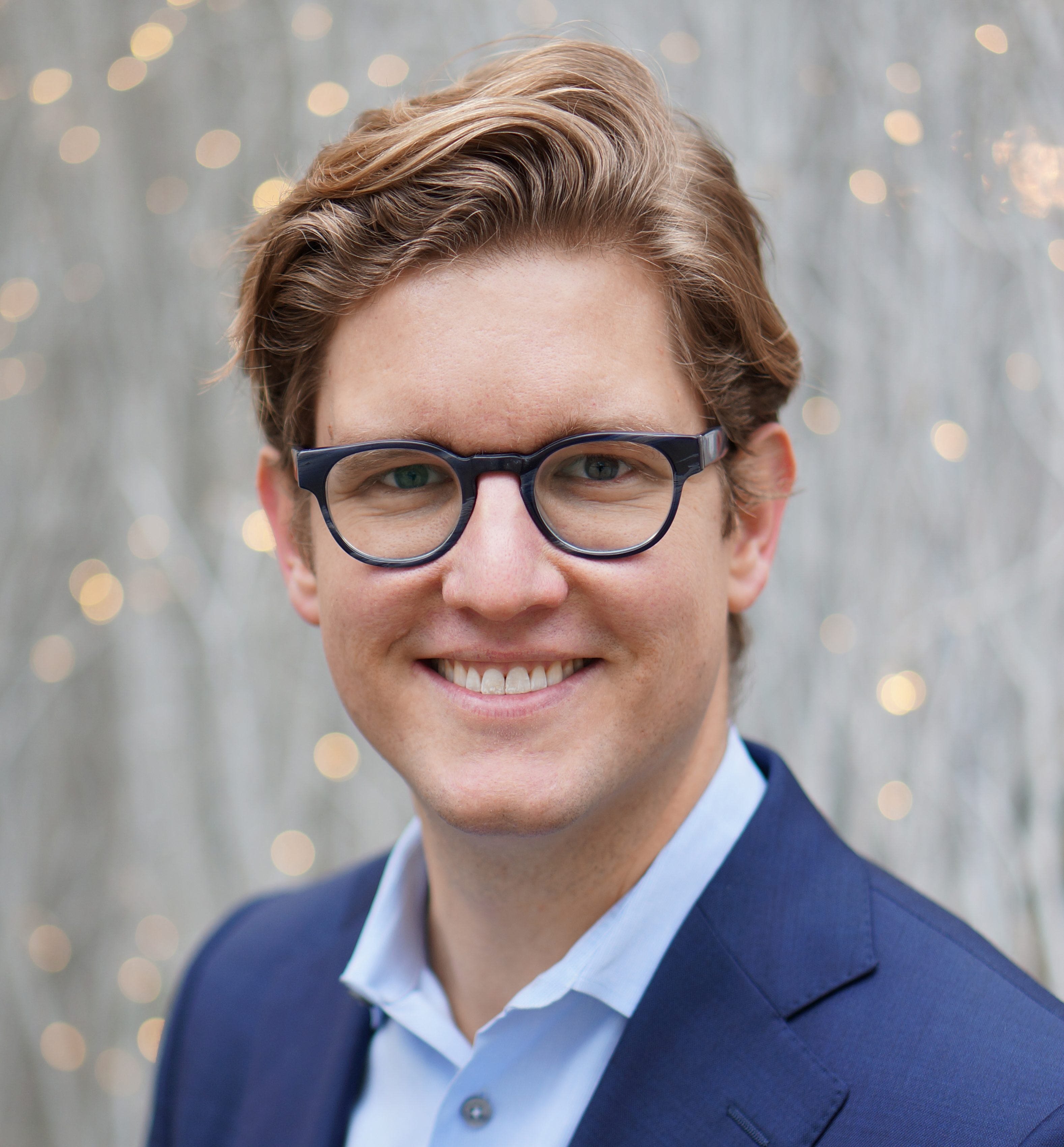 Christian Lang
Head of Strategy, Reynen Court; Founder, NY Legal Tech Meetup
Christian Lang
Head of Strategy, Reynen Court; Founder, NY Legal Tech MeetupChristian Lang is a business strategist at Reynen Court, a cloud platform where law firms can easily select and deploy pre-approved artificial intelligence technologies. In addition to his work at Reynen Court, Christian is a founder of the New York Legal Tech Meetup, a community of lawyers, software developers, and legal tech enthusiasts. A self-described “recovering corporate lawyer”, he blogs and podcasts at Blacklines & Billables and founded the inspire.legal conference, which gathers a diverse set of lawyers, clients, and technologists to collaborate and solve problems. In all, Christian has organized and connected thousands of legal tech innovators, and continues to inspire them in their careers.
 Marc Lauritsen
Founder and President, Capstone Practice Systems
Marc Lauritsen
Founder and President, Capstone Practice SystemsMarc Lauritsen is a pioneer of legal software. For over two decades, Marc has been blazing trails on document automation and artificial intelligence. He earned two degrees from MIT and a J.D. from Harvard Law School, served in legal aid offices, and then returned to Harvard to direct clinical programs, including Project Pericles, Harvard’s first major research program in law and computers. Through his company, Capstone, Marc and his team are systematizing complex know-how into easy-to-use practice tools, such as building custom software applications for document drafting and other legal tasks. He’s also teaching the next generation through his courses on document automation and decision making by leading Suffolk University Law School’s Institute on Law Practice Technology and Innovation.
 James Lee
Co-Founder and CEO, LegalMation; Founding Partner, LTL Attorneys LLP
James Lee
Co-Founder and CEO, LegalMation; Founding Partner, LTL Attorneys LLPMuch has been made of how AI will ultimately impact the practice of law, but perhaps one of the most concrete examples of just how much there is to gain from the technology is LegalMation, a company co-founded by business litigator James Lee. LegalMation uses software powered by IBM Watson to scan and digitize complaints; extract key allegations, facts, and parties; then draft detailed replies (think answers, interrogatories, and other pleadings) customized to the facts alleged in the complaint. What used to take hours now takes about 2 minutes, at least for a software-generated first draft. LegalMation is only available in certain jurisdictions and for certain causes of action, but James and his team have created a powerful proof of concept for the automation of legal work, and they are quickly expanding their code to cover new jurisdictions.
 Erin Levine
Founder and CEO, Hello Divorce
Erin Levine
Founder and CEO, Hello DivorceAs a family law attorney practicing in the Bay Area, Erin Levine quickly realized there was room for improvement in how the public accessed divorce services. With the cost of divorce reaching into the price range of a new car, clients needed an affordable way to understand the process with as little stress as possible. Enter Divorce Navigator, a streamlined application that takes self-represented divorce filers on a step-by-step journey using pragmatic tools, including a child divorce calculator, legal definitions, and flowcharts. Hello Divorce also offers avenues to professional help, with legal coaching and a complimentary consultation with a divorce expert at the time of sign up. A classic disruptor, Erin’s workflow tools have helped thousands of clients make it through a difficult time in their lives without unnecessary financial burden.
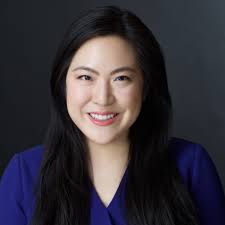 Tiffany Li
Resident Fellow, Information Society Project, Yale Law School
Tiffany Li
Resident Fellow, Information Society Project, Yale Law SchoolOnline platforms have become an essential part of American life, and in the last few years, a major part of civil conflict. From election interference to content moderation and questions of free speech, online platforms have global reach and introduce new, transnational challenges to law and norms. Tiffany Li has become a leading expert on the law and policy surrounding new technologies, and how they interact with privacy and intellectual property. At Yale Law, she also works on research related to intermediary liability and online speech in her role as Director of the Wikimedia/Yale Law School Initiative on Intermediaries and Information (WIII). New threats (e.g. deep fakes) seemingly spring out of online platforms every year, and Tiffany’s research better prepares us for how the law should deal with these new challenges.
 Jason Lockhart
Partner, McAngus Goudelock & Courie (MGC)
Jason Lockhart
Partner, McAngus Goudelock & Courie (MGC)Jason Lockhart is an efficiency junkie, constantly seeking innovative ways to improve the business of law to serve clients more effectively and efficiently. He spearheaded The Insurance Defense Incubator for McAngus Goudelock & Courie (MGC) and is now taking the insurance defense industry to the next level by bringing AI to better understand judgments. Jason has been using Amazon AI tools in Fastcase’s AI Sandbox to tag and understand opinions, create new data analytics insights, and create compelling, beautiful visualizations. Using AI and data analysis tools, MGC’s goal is to benefit clients by assessing cases more accurately and cutting the life cycle of their cases in half.
 Mike Maschke
CEO, Sensei Enterprises, Inc.
Mike Maschke
CEO, Sensei Enterprises, Inc.Understanding and navigating digital forensics and cybersecurity can be confusing and overwhelming. That’s why Mike Maschke created the Digital Forensics Dispatch, a blog with real-life scenarios and narratives that explores and teaches about the role of digital forensics while also providing readers with interesting stories for water cooler conversations. Mike is a Certified Ethical Hacker (CEH), so one can only imagine that he has insights and experiences fit for Hollywood blockbusters. He’s the CEO of Sensei Enterprises and has co-authored 12 books, including the annual Solo and Small Firm Legal Technology Guides, with fellow Sensei founders and Fastcase 50 honorees Sharon Nelson and John Simek.
 Tony Mauro
Supreme Court Correspondent, ALM’s Supreme Court Brief
Tony Mauro
Supreme Court Correspondent, ALM’s Supreme Court BriefTony Mauro is a legal journalism icon. For 40 years he’s covered the U.S. Supreme Court, from its history, traditions, and major cases, to the records and recusals of the justices, as well as their personal lives and personalities beyond the bench. Tony has kept us informed on the lawyers and firms arguing cases before the highest court in the land and chronicled the major shifts of the Court over the past four decades from new appointees, retirements, and deaths to moving SCOTUS into the digital age. He has authored several books about SCOTUS and has chronicled the Court for USA Today, The Legal Times, and The National Law Journal. Tony advocates for Freedom of the Press, and in 2011 was inducted into the Freedom of Information Act Hall of Fame. As he retires from full-time coverage of the Supreme Court this year, Fastcase honors Tony Mauro for the insight and intelligence with which he has built an amazing career in journalism.
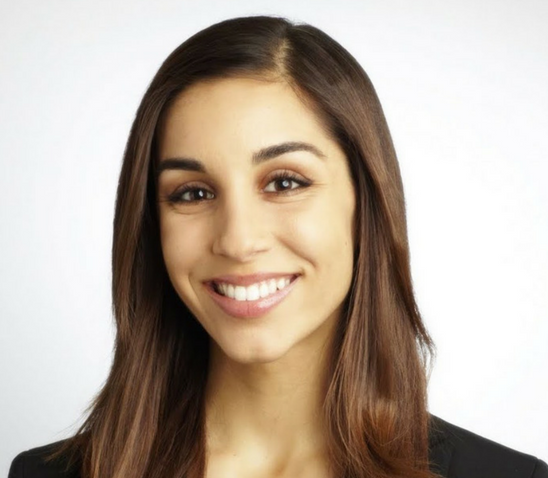 Dorna Moini
Founder and CEO, Documate
Dorna Moini
Founder and CEO, DocumateDocuments and forms are central to the practice of law, and document automation is an important way for firms and their clients to be faster and more accurate. Dorna Moini and her company Documate have changed the way that firms handle forms. The platform helps lawyers and firms automate the filling and filing of forms, all without any coding or programming. Documate has its origins in the pro bono community, originally created as an app to aid survivors of domestic violence. As Documate has expanded, its commitment to pro bono work has not faltered. Dorna’s team continues to excel in providing services for free to everyone from pro se litigants to low-income tenants and workers.
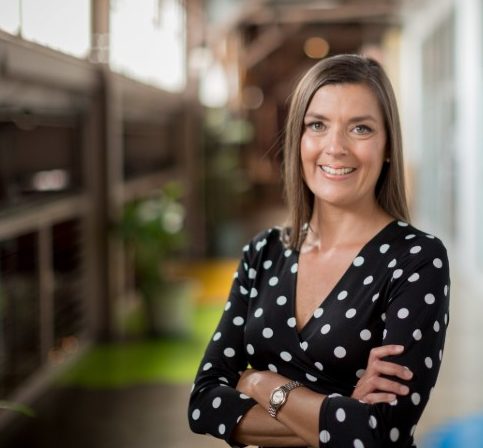 Cat Moon
Director of Innovation Design and Professor, Vanderbilt Law School
Cat Moon
Director of Innovation Design and Professor, Vanderbilt Law SchoolThe legal world is changing quickly, but most law school classrooms would be recognizable to students from the 1800s. As the Director of Innovation Design at Vanderbilt Law’s Program in Law and Innovation (PoLI), Cat Moon has been leading a quiet revolution in law school education. Cat’s program brings together all types of legal minds, with classes available to anyone involved in the law. Students collaborate and explore how to bridge the access to justice gap through “Innovation Immersion” courses that deliver practical skills, from big data to blockchain and smart contracts. Before teaching at Vanderbilt, Cat’s fascination with blockchain drove her to found Ledger.Law, a consultancy company advising firms on regulation and policy related to the new tech.
 Ian Nelson
Co-Founder, Hotshot
Ian Nelson
Co-Founder, HotshotWith new generations of lawyers raised on YouTube throughout their education, former Practical Law Company executive Ian Nelson anticipated that long CLE seminars and one-way lectures were not going to stand the test of time. Firms, with their own proprietary training materials for new associate training, wanted their materials to match the way a firm practiced law. The answer is Hotshot Legal, a series of short, custom-created videos organized around transactional, litigation, and business skills. Hotshot’s popular training videos (including professional actors) support the training program of firms, and keep the founders busy expanding the courses into more areas of law.
 Craig Newton
Co-Director, Cornell Legal Information Institute
Craig Newton
Co-Director, Cornell Legal Information InstituteCornell’s Legal Information Institute (LII) is a powerhouse of the legal tech community, having made the law easily and freely accessible online since 1992 (years before many lawyers even began using the internet). LII’s work is so popular it is literally the most linked-to web resource in the field of law. Helping to lead LII’s vision and projects for the last 6 years is former Naval Officer and IP litigator Craig Newton, himself once a student at Cornell Law, and former Editor-in-Chief of LII’s famous Supreme Court Bulletin. With the retirement of Co-Founder Tom Bruce this year, Craig will co-direct the LII’s next chapter with fellow Fastcase 50 honoree Sara Frug.
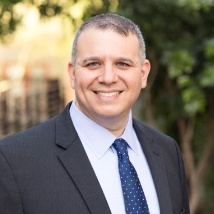 Jonah Paransky
Executive Vice President and General Manager, Wolters Kluwer’s ELM Solutions
Jonah Paransky
Executive Vice President and General Manager, Wolters Kluwer’s ELM SolutionsThe work of corporate legal departments is difficult, with competing options among software tools and outside counsel, and increasing pressure to add predictability to the cost and complexity of legal matters. Jonah Paransky is a leader in providing technology solutions that address the needs of general counsels and their corporate legal departments. Under Jonah’s leadership, Wolters Kluwer’s ELM Solutions has expanded its offerings in legal operations, grown market share, and achieved significant industry recognition. In the past several months, Jonah has helped Wolters Kluwer acquire contract lifecycle management software provider CLM Matrix.
 Keith Porcaro
Co-Founder, Digital Public; Adjunct Professor, Georgetown University Law Center
Keith Porcaro
Co-Founder, Digital Public; Adjunct Professor, Georgetown University Law CenterKeith Porcaro is a Co-Founder of Digital Public, a project dedicated to educating and assisting communities and organizations in managing data more intelligently. Together with fellow Georgetown Law Professor (and fellow Fastcase 50 2019 honoree) Jason Tashea, Keith has built simulations designed to demonstrate to lawyers and students the transformative effects that risk assessment technologies can have on the criminal justice system. He holds positions at three top law schools – an adjunct professorship at Georgetown Law, a research affiliate role at Duke’s Center on Law and Technology, and an affiliate role with Harvard’s Berkman Klein Center.
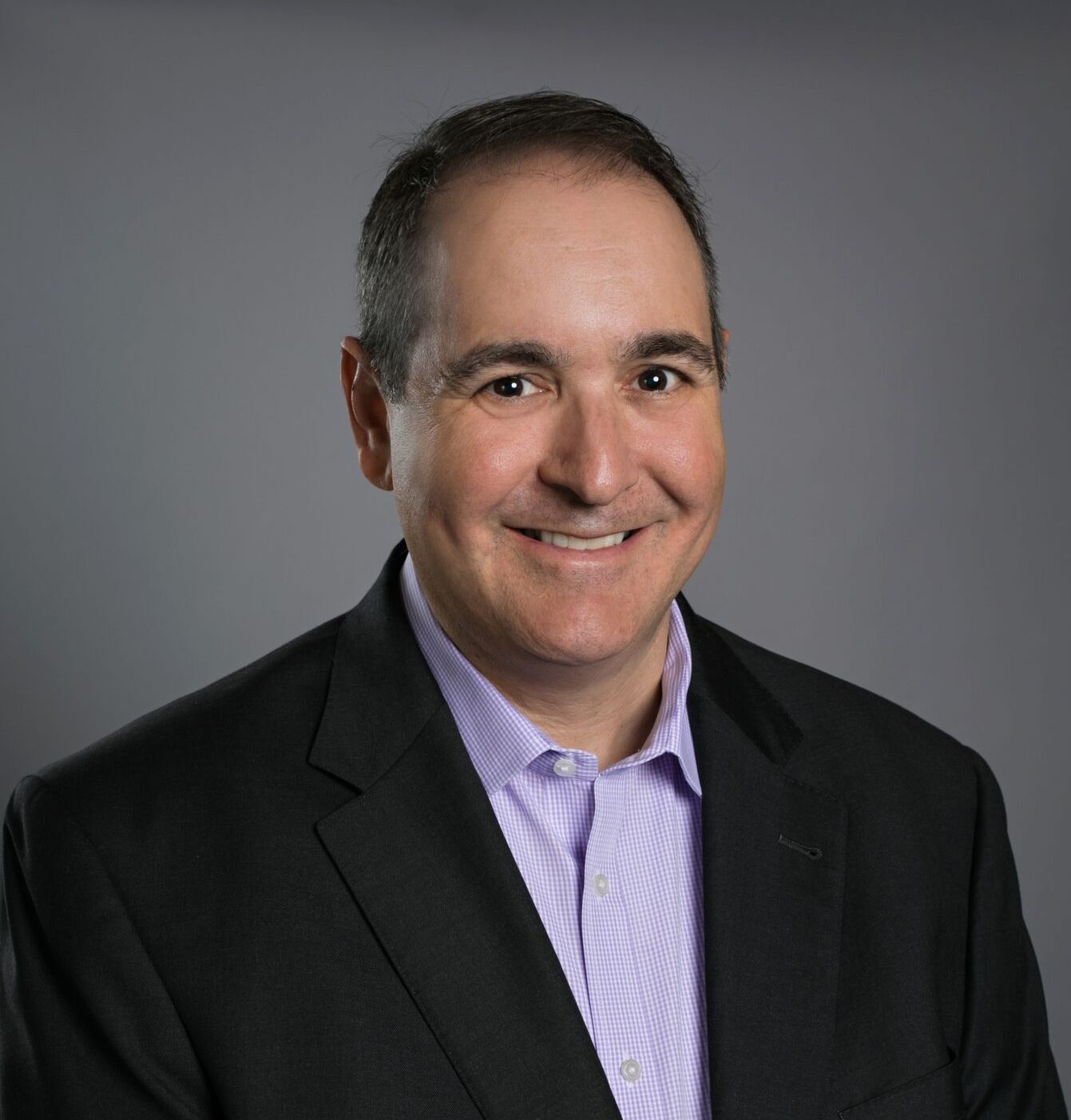 Seth Price
Founder, BluShark Digital; Founding Partner, Price Benowitz LLP
Seth Price
Founder, BluShark Digital; Founding Partner, Price Benowitz LLPAt Price Benowitz, Seth Price has created one of America’s best-known law firms, in part because his firm has such a large online footprint for legal matters. Over the past decade, Seth has scaled his two-person firm to 40 lawyers. And that’s no accident. Seth is a master of the art of online presence and search engine optimization (SEO). But he’s not keeping the secret to himself. Now Seth is helping attorneys avoid costly mistakes and false marketing promises. Realizing that other attorneys and firms were getting baited by big-talking marketers, he created BluShark Digital to help other lawyers get found online and create digital marketing campaigns that generate leads and results.
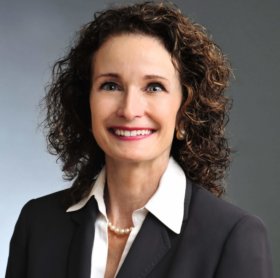 Jayne Reardon
Executive Director, Illinois Supreme Court Commission on Professionalism
Jayne Reardon
Executive Director, Illinois Supreme Court Commission on ProfessionalismOver the last 13 years, Jayne Reardon has inspired lawyers, challenging them to embrace change while preserving the core values of the practice: civility, service, and professionalism. In 2006, Jayne helped lay the framework for what has become the Illinois Supreme Court Commission on Professionalism, a group created to promote a more amicable and inclusive legal culture. In addition to countless writing and speaking engagements, perhaps her most impactful effort to inspire change came in 2016, when Jayne launched the inaugural The Future Is Now conference. In 2019, that effort continues as a “must attend” law conference focusing on the future trajectory of the legal profession.
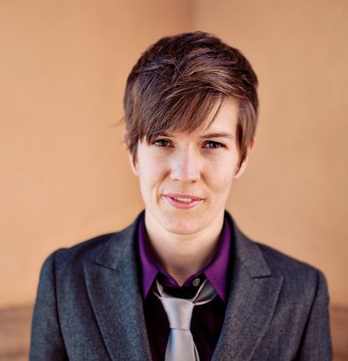 Erika Rickard
Senior Officer, Civil Legal System Modernization, The Pew Charitable Trusts
Erika Rickard
Senior Officer, Civil Legal System Modernization, The Pew Charitable TrustsAccess to Justice is one of the most trying challenges of our time, with a legal system that is still impenetrable for the average American. Erika Rickard is certainly making a dent in the problem, and then some. As the leader of The Pew Charitable Trusts’ pilot project focused on modernizing the civil legal system, Erika is promoting online dispute resolution to resolve cases at lower costs and without further clogging courthouse dockets. She also works on tools that guide underserved populations through legal information in plain language. Erika’s experience at Harvard’s Access to Justice Lab and the Massachusetts Access to Justice Commission prepared her for her work at Pew, where her innovations can have a nationwide impact.
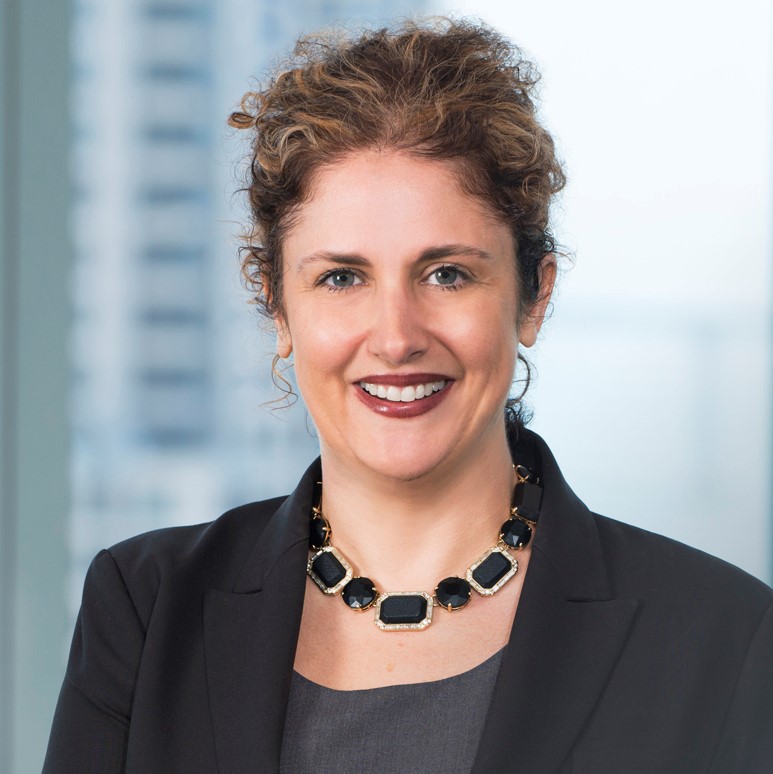 Heather Rosing
President, California Lawyers Association; CFO and Shareholder, Klinedinst PC
Heather Rosing
President, California Lawyers Association; CFO and Shareholder, Klinedinst PC Heather Rosing’s multifaceted career tackles ethics, finance, and access to justice all at once. As the CFO and managing attorney of Klinedinst PC, a West Coast law firm with several offices, Heather has a decade of experience representing and advising judges and commissioners on judicial ethics. She was instrumental in the recent launch of California’s voluntary state bar, the California Lawyers Association (CLA), and was elected as the CLA’s first president. Heather is dedicated to ensuring that all Californians can access a justice system that is fair and serves their diverse legal needs, including education, housing, and resolution of family matters. Her contributions include mentoring for the Color of Justice and MentorJet programs with the National Association of Women Judges, and she guides California’s largest scholarship resource for diverse law students as President of the California Bar Foundation.
 Jim Shelar
Former Chief Law Librarian, Arnold & Porter (In Memoriam)
Jim Shelar
Former Chief Law Librarian, Arnold & Porter (In Memoriam)A legend among law librarians, Jim Shelar passed away just before this year’s Fastcase 50 awards. As a law librarian first at Squire Sanders, then later as Chief Law Librarian at Arnold & Porter, Jim oversaw a number of notable firsts, among them being the first law firm library to have a Lexis terminal. He also beta tested one of the first citation checking systems, “auto-cite”, which worked with mag-cards and acoustic couplers to permit long-distance, high-speed data transmission. Jim was the first library director to sign up for ICLC in DC. He was a big believer in the expansion of libraries within Lexis, West, and Hein, providing legislative history and congressional hearings information to expand these collections, as well as advocating for publishers to remain focused on the actual needs of lawyers, especially in the areas of consistency, standards, and ease of use. As Chief Law Librarian for Arnold & Porter for 41 years, he mentored many young law librarians, as well as participated in too many committees and executive boards to list. He will be sorely missed for his great insight and work.
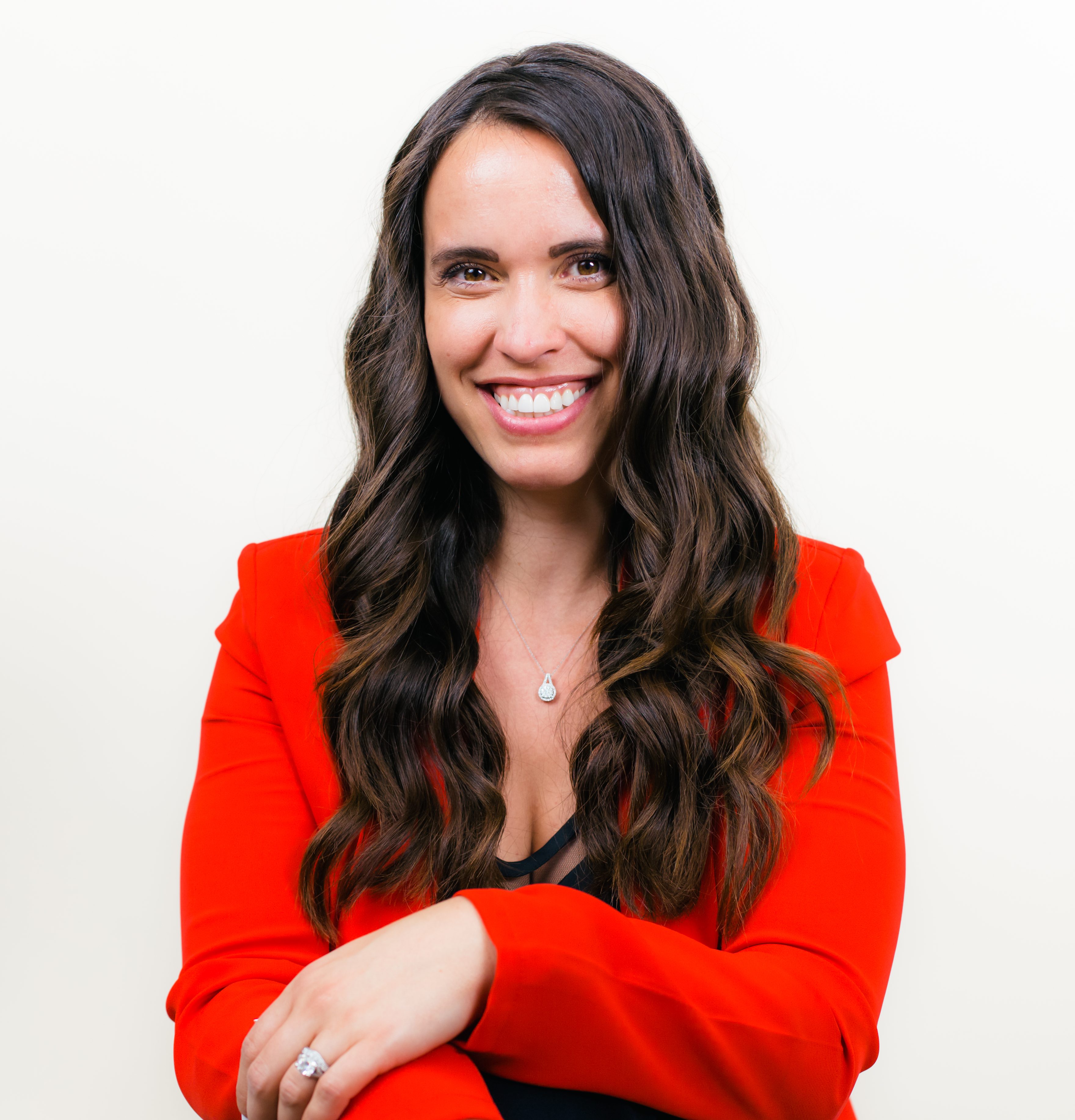 Janine Sickmeyer
CEO and Founder, NextChapter
Janine Sickmeyer
CEO and Founder, NextChapterDesigning beautiful form filing software is incredibly difficult. It requires carefully tracking updates, developing the most efficient processes for users, and testing workflows in real world scenarios. In a modern law firm, it should also run seamlessly on the cloud. After years of working as a bankruptcy paralegal, Janine Sickmeyer was more than prepared to crack the code of pain free software-assisted bankruptcy filing, so she stepped into an attorney-dominated boys club and did it. The result was NextChapter, an online filing program used by thousands of attorneys that automates cumbersome forms so bankruptcy practitioners can serve more clients and do their part to narrow the access to justice gap.
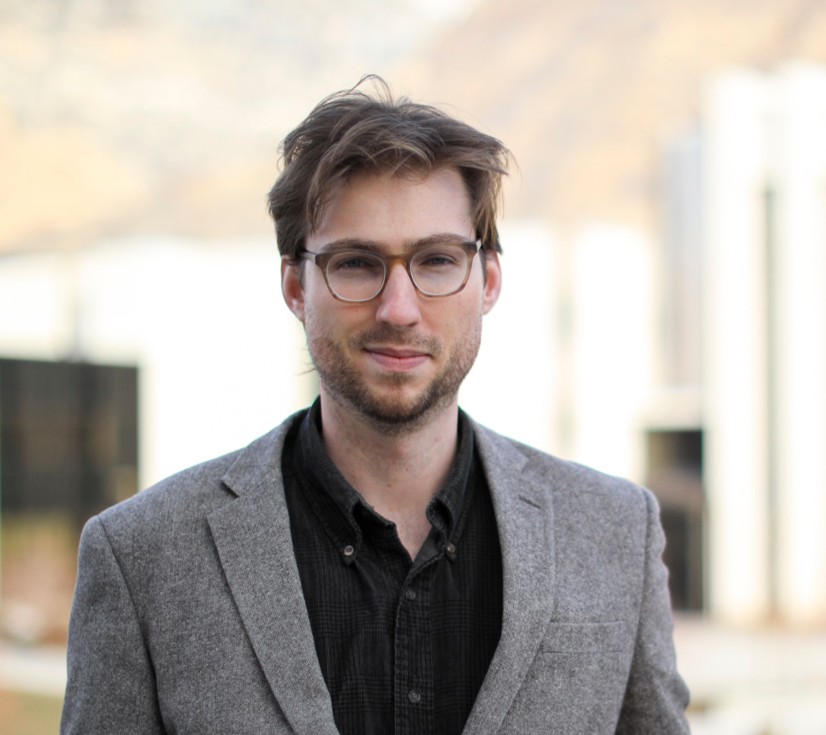 George Simons
Co-Founder, Lawble; Founder, SoloSuit; Co-Organizer, Global Legal Hackathon
George Simons
Co-Founder, Lawble; Founder, SoloSuit; Co-Organizer, Global Legal Hackathon In his previous work with political campaigns, George Simons witnessed the disruptive impact that data and technology were having on elections and realized the legal industry was ripe for similar disruption opportunities. In his own words, “the benevolence of the internet, which allows legal services to be provided at scale and for such a small cost, really appeals to me.” George was a charter member of the LawX Lab class, formed by fellow Fastcase 50 honorees Kimball Parker and Dean Gordon Smith, where he helped develop SoloSuit to assist Utah’s pro se defendants easily file answers in debt collection cases, and played a leading role in bringing the Global Legal Hackathon to Utah. George recently founded Lawble, a social venture that uses natural language processing and distribution logic to process case information and connect clients with the best legal resources available.
 Scott Sipe
Associate Publisher, Carolina Academic Press
Scott Sipe
Associate Publisher, Carolina Academic PressScott Sipe joined the family business, Carolina Academic Press (CAP), a leader and academic publisher of books and software in the legal education market since the 1970s. Besides publishing the legendary blockbuster “Plain English for Lawyers,” CAP is well known for producing law school textbooks. To catapult his company to the next level, Scott developed CAP Law Online, in which he builds simulation-learning modules for professors to assess the skills of students and develop remedial learning programs. No matter how much information is digitized, there remains an important role for publishers, and especially print publishers. Scott is transforming his family’s publishing business into a print and digital powerhouse for the next century.
 Ed Sohn
Managing Director, EY
Ed Sohn
Managing Director, EYThe landscape of alternative legal service providers (ALSPs) is changing, fast, and Ed Sohn is mapping the front of the new terrain. Ed managed Thomson Reuters’ Pangea3, the legal managed services business that pioneered the global outsourcing of legal work to offshore legal professionals. This year, that business sold to big four accounting firm Ernst & Young, which fellow Fastcase 50 honoree Bob Ambrogi predicts should be a wake-up call for law firms, as global accounting firms are shifting towards combining “people, processes, and technology to deliver legal services both effectively and at greater value.” Alongside co-author Joe Borstein, Ed covers innovative technologies and businesses in the legal industry for the must-read Alt.Legal column in Above the Law.
 Alyza Tarmohamed
Senior Director, LegalVIEW Bill Analyzer, Wolters Kluwer
Alyza Tarmohamed
Senior Director, LegalVIEW Bill Analyzer, Wolters KluwerAlyza Tarmohamed is the driving force behind WLM Solutions’ LegalVIEW Bill Analyzer, software designed to improve in-house legal operations. BillAnalyzer is a bill review service that frees up in-house attorneys' time to focus on higher value work, improves billing guideline compliance, and delivers up to 10% cost savings over traditional invoice review processes. Alyza has worked closely with legal and claims professionals, developing a deep understanding of the processes and challenges of legal bill review for different organizations. You think you get a lot of bills? Since its launch in 2017, Alyza and the BillAnalyzer have reviewed more than $1.5 billion in legal bills.
 Jason Tashea
Legal Affairs Journalist, ABA Journal; Founder and Director, Justice Codes; Adjunct Professor of Law, Georgetown Law
Jason Tashea
Legal Affairs Journalist, ABA Journal; Founder and Director, Justice Codes; Adjunct Professor of Law, Georgetown LawJason Tashea is a social entrepreneur with a keen interest in how data reflects and changes the legal system, particularly criminal justice reform. He curates the JusticeTech Download weekly newsletter, and, as a legal affairs writer for the ABA Journal, he investigates how technology affects the business and practice of law, including venture funding of legal technology, cybersecurity, and legal ethics. Jason founded Justice Codes, a non-profit criminal justice technology consultancy that helps understand the use and impact of technology and data on the criminal justice system. He has also developed online legal technology tools for the Bronx Defenders, the Mississippi Access to Justice Commission, and the University of Michigan School of Law. Jason co-created and co-teaches a first-of-its-kind course on criminal justice technology, policy, and law at Georgetown Law Center.
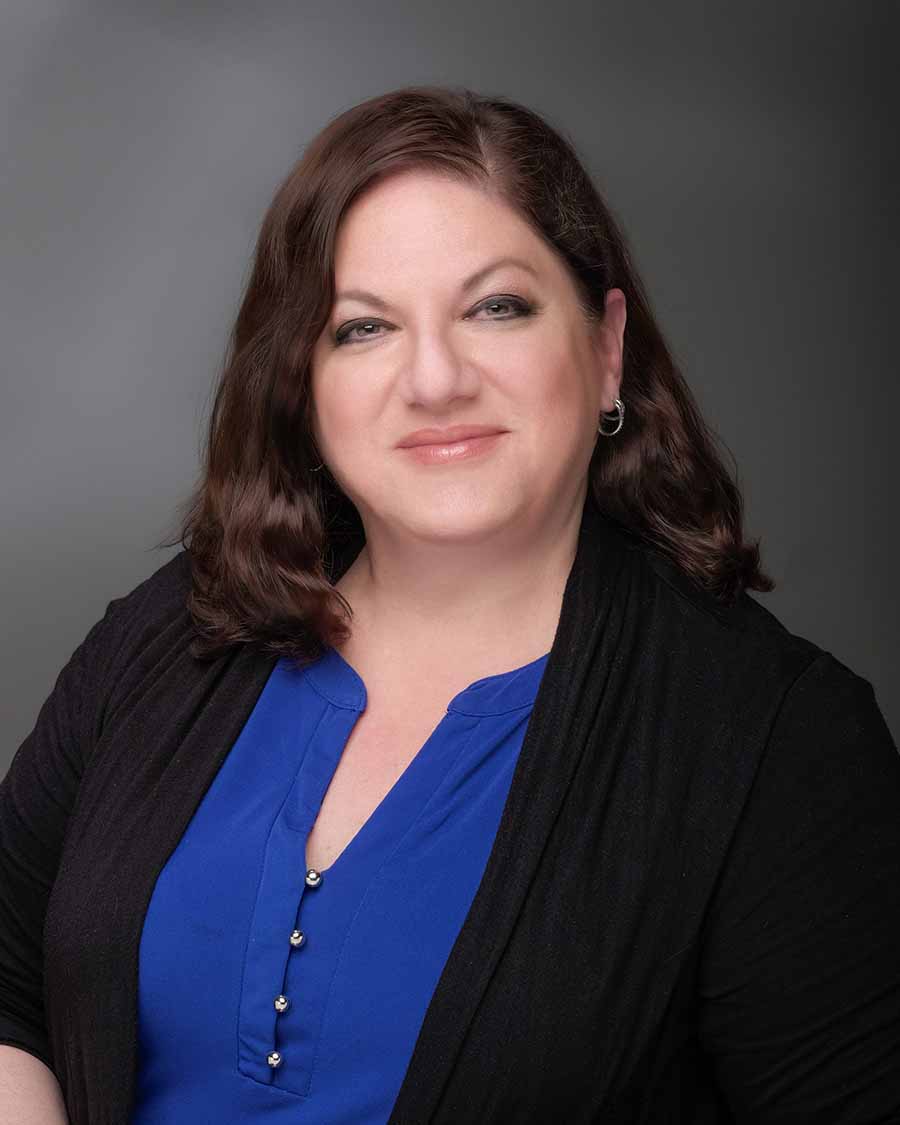 Roberta Tepper
Lawyer Assistance Programs Director, State Bar of Arizona
Roberta Tepper
Lawyer Assistance Programs Director, State Bar of ArizonaAs the head of the State Bar of Arizona’s Lawyer Assistance Program, Roberta Tepper plays an unsung role in the legal world. She organizes mentorship programs and advises members on key practice management skills that law school might not have covered. Her career spans a wide variety of roles that inform her current expertise. Roberta practiced as an Assistant District Attorney in North Carolina and worked as a court administrator in Delaware prior to joining the State Bar of Arizona as bar counsel. These varied experiences have shaped Roberta into an exemplar of practice management advice. Her insightful questions aid legal professionals in navigating opportunities to improve legal services and have helped inspire legal tech companies to improve their products and services. We are excited that Roberta will be bringing this expertise to bear as Co-Vice Chair of ABA TECHSHOW 2020.
 Renee Thompson
Mediator, Upchurch Watson White & Max; Executive Committee Member and Incoming Chair of the Board Technology Committee, The Florida Bar
Renee Thompson
Mediator, Upchurch Watson White & Max; Executive Committee Member and Incoming Chair of the Board Technology Committee, The Florida BarRenee is a rising star among Florida lawyers and has been integral to The Florida Bar’s effort to emphasize the importance of practice management and technology skills for attorneys. Renee has helped to form the Bar's Technology committees and initiatives, including chairing the Bar's Solo Small Firm Technology Conference, bringing the Clio Cloud Conference to the Florida Bar Annual Convention, and developing the Practice Resource Institute. Renee seems to help Florida attorneys at every turn, re-launching the Bar's Lawyer Referral Service to an online based system and launching its social media platforms. She served as the President of the Young Lawyers Division in 2010-11 and assisted with Techshow Roadshows that bring skills to attorneys around the state in a CLE setting. On top of it all Renee teaches practice management and technology as an adjunct professor at the University of Florida Levin College of Law.
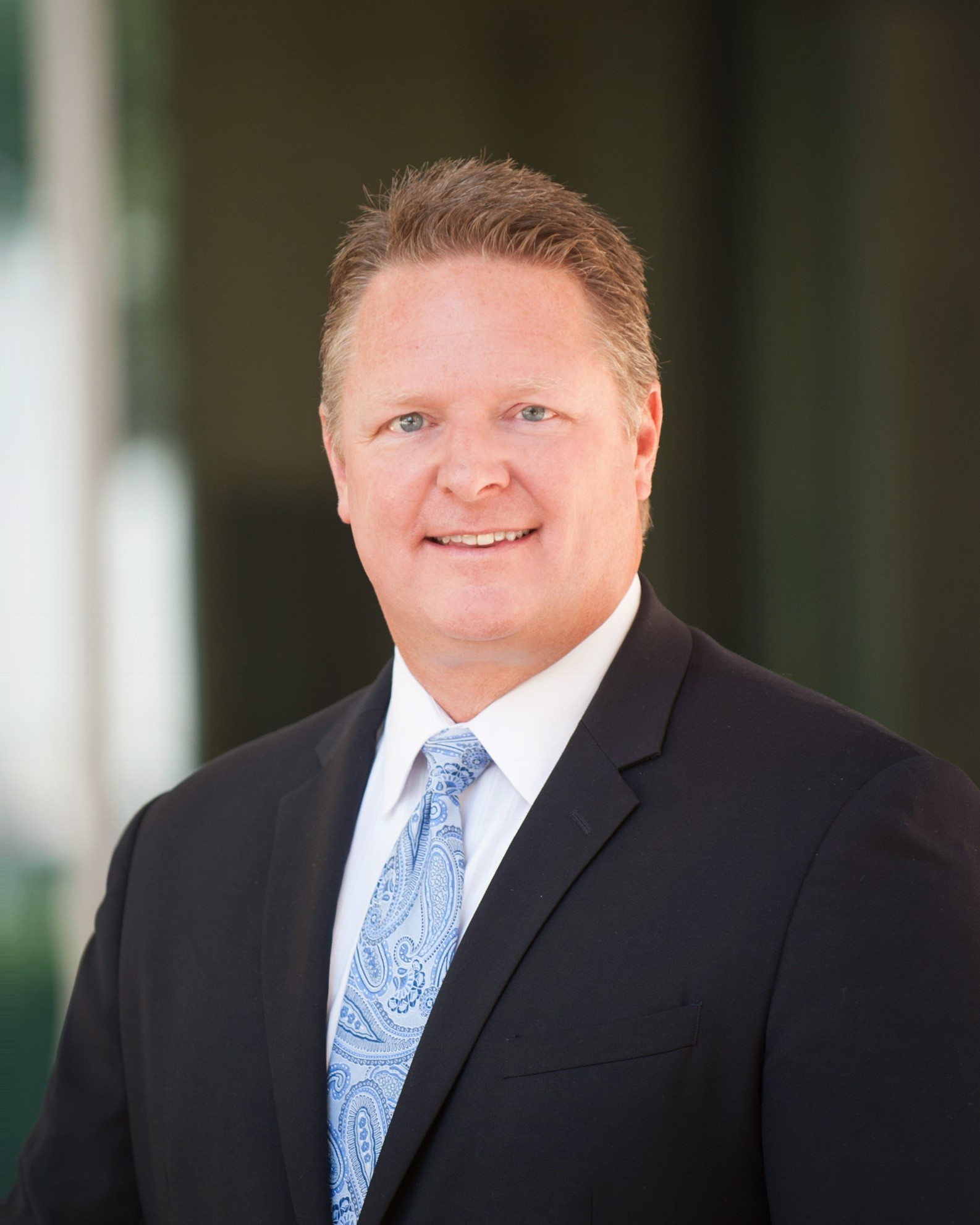 Shawn Tuma
Partner, Spencer Fane
Shawn Tuma
Partner, Spencer FaneCybersecurity is a massive challenge for businesses, and especially law firms, where the stakes could not be higher. Despite the risks, many firms struggle to maintain basic security of their private data. Shawn Tuma comes at cybersecurity from a lawyer’s perspective, because he is a lawyer. Tackling cyber risk management, incident response, and security for a variety of companies in and outside of the law, Shawn not only consults with clients to improve their practices, but sometimes legally represents them in related litigation. Shawn also works to share his knowledge with other attorneys, as an Officer for the Computer & Technology Section and a Privacy and Data Security Committee Member for the State Bar of Texas.
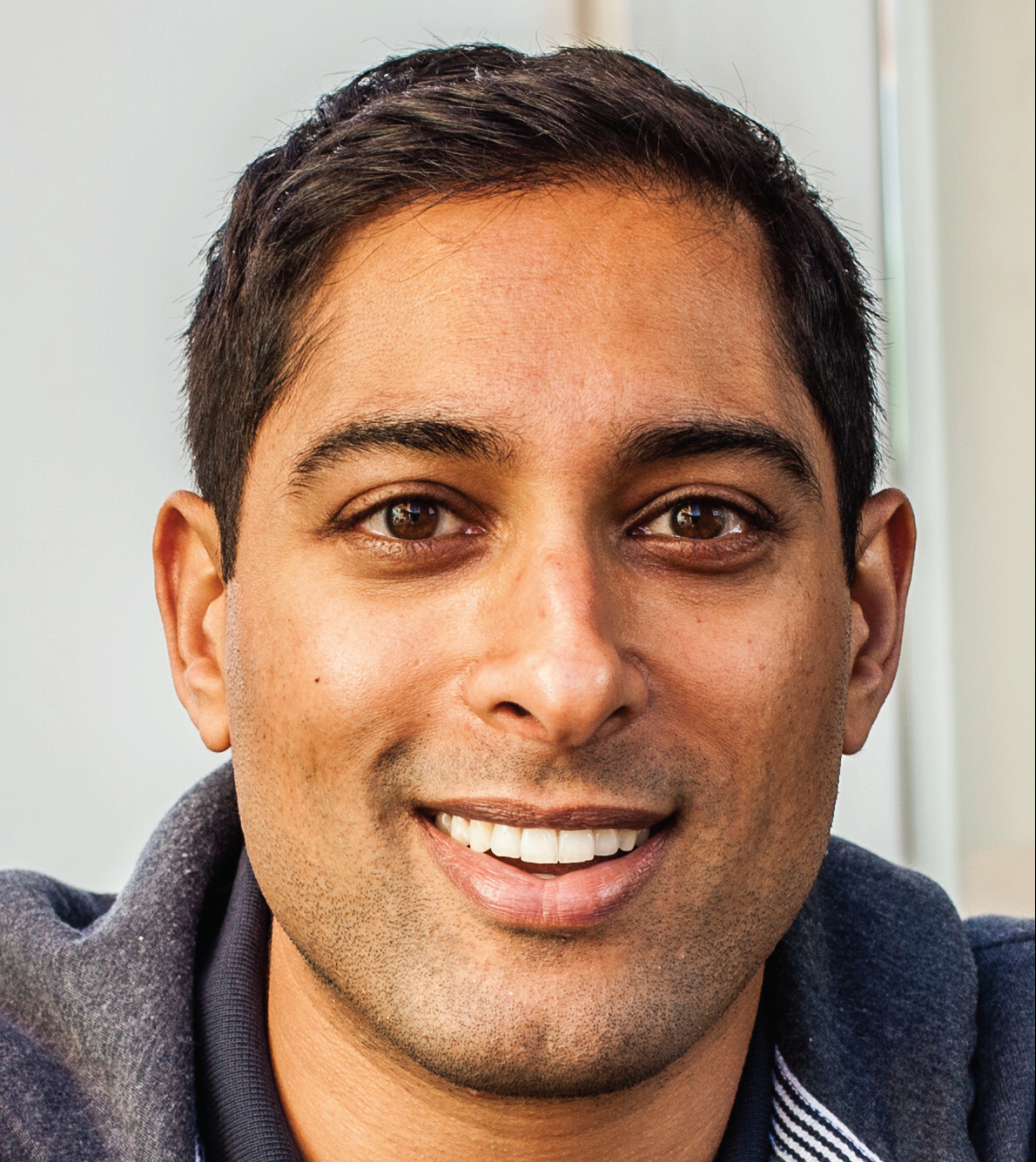 Anand Upadhye
Attorney and Vice President of Business Development, Casetext
Anand Upadhye
Attorney and Vice President of Business Development, CasetextAs Vice President of Business Development at Casetext, Anand Upadhye has played a key role in introducing and evangelizing Castext’s AI-assisted brief analysis tool CARA to a new generation of lawyers. Anand’s portfolio reflects his balanced skills in law, software, and sales. He has spoken around the world about legal research and artificial intelligence, which may have been good training for hosting his new, Casetext-sponsored podcast, The Modern Lawyer, now in its second season.
 Susan Williams
Reporter of Decisions, Arkansas Supreme Court
Susan Williams
Reporter of Decisions, Arkansas Supreme CourtLawyers, even those not entrenched in legal publishing, know intuitively that reported cases are still tied to somewhat archaic methods (see: citations to paper page numbers), and the only permissible citations are often associated with private publishing companies. However, several dedicated innovators are working to change that, including Susan Williams, who serves as the Reporter of Decisions for Arkansas. For 10 years Arkansas has bucked tradition by recording all decisions electronically, not in books published by outside parties, but in its own secure database. Susan has been instrumental in this shift, helping to grow the project to include opinions of the Supreme Court, Court of Appeals, Court Rules, and Administrative Orders in a form that is easily accessible to the public. Arkansas has also adopted media-neutral citations, which allows complete, official citations to opinions immediately, and without regard to where opinions will be published in paper books.
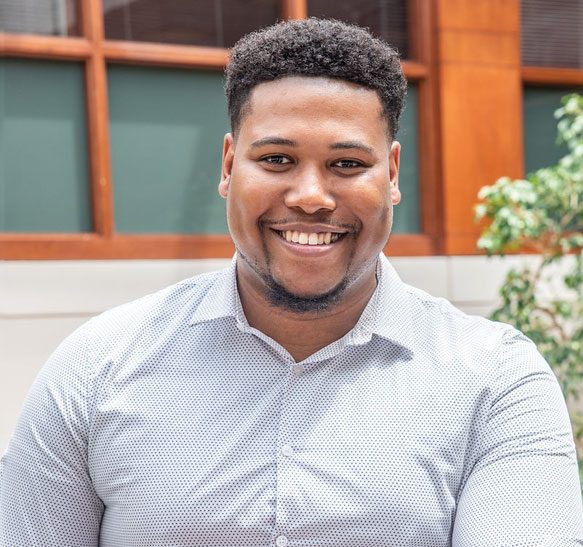 Miguel Willis
Founder, Access To Justice Fellows; Presidential Innovation Fellow, Law School Admission Council
Miguel Willis
Founder, Access To Justice Fellows; Presidential Innovation Fellow, Law School Admission CouncilWhile it’s easy for law students to slip into the throes of self-interested peer-to-peer competition, for grades, clerkships, and other “leg ups”, Miguel Willis was not going to wait until graduation to make a difference for others. As a 2L at Seattle University School of Law, he founded the Access to Justice Tech Fellows Program, work he continues to this day in his role as the Law School Admission Council (LSAC)’s first Presidential Innovation Fellow. The summer fellowship trains law students across the country on how to transform technological innovations into concrete legal services that benefit the public. ATJ Tech Fellows also hosts a Justice Innovation Challenge which seeks “community centered solutions that utilize digital technology, user-centered design, and/or data informed decision making in addressing the gap in legal services.”

Winner of the prestigious American Association of Law Libraries (New Product) Award, Fastcase for iOS, Android, and Windows Phone is used by more attorneys than any other legal app according to the ABA. Anyone may use the app for free to access Fastcase's comprehensive legal research database on the go.